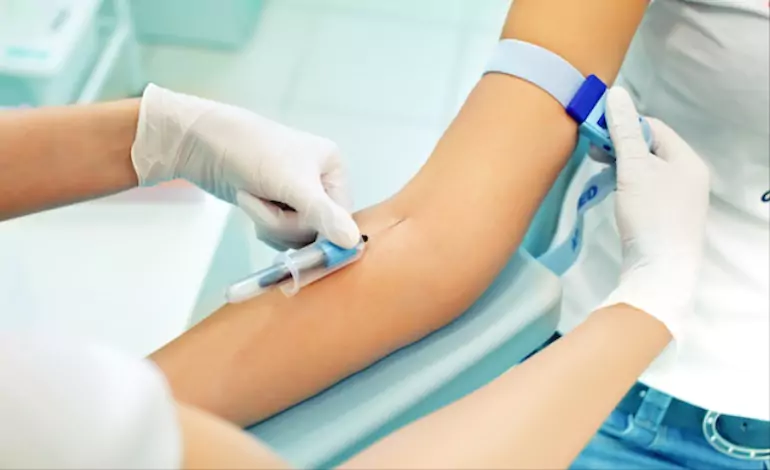March 20
Whether you have had a blood test before or if its your first time, preparing for a blood test is crucial for accurate results and a comfortable experience. In this guide, we'll explore everything you need to know, from understanding blood tests to post-test care.
Understanding Blood Tests:
Before diving into the preparation, let's briefly explore what blood tests are and why they're essential. Blood tests are versatile tools used for diagnosing, monitoring, and preventing a wide range of medical conditions, ultimately contributing to improved overall health and therapeutic results. Blood tests can provide valuable information about your health, such as your cholesterol levels, blood sugar levels, and the presence of infections or underlying diseases.
The Importance of Preparation Before a Blood Test:
Proper preparation before a blood test is crucial to ensure accurate results and a smooth testing experience. Here's why preparation matters:
Accuracy: Accurate results are crucial for diagnosing medical conditions and assessing your overall health. Factors, such as recent meals or medications, can affect your blood chemistry, potentially leading to misleading results which could lead to misdiagnosis or unnecessary medical interventions.
Comfort: Proper preparation can minimize discomfort and anxiety associated with the blood test, making the experience more comfortable.
Step-by-Step Guide to Preparing for a Blood Test
- Air fares
- Hydration
- Dress Comfortably
- Relaxation Techniques
- Avoid Alcohol and Caffeine
Many blood tests, such as those for cholesterol and blood glucose, require fasting. Typically, you should fast for at least 8 to 12 hours before the test. During this time, only drink water.
Drink plenty of water before your blood test to stay well-hydrated. Dehydration can make it difficult to locate veins, potentially leading to multiple needle sticks.
Wear loose-fitting clothing that allows easy access to your arm, as the blood is usually drawn from a vein in your arm.
Practice relaxation techniques, such as deep breathing or meditation, to reduce anxiety and stress before the test.
Refrain from alcohol and caffeine intake in the 24 hours leading up to your blood test, as they can affect your blood pressure and heart rate.
Nutritional Advice for Blood Test Preparation
While fasting, it's essential to make mindful choices to ensure your body remains nourished and hydrated:
- Hydrate with Water
- Avoid Sugary Beverages
- Limit Salt Intake
- Skip High-Fat Meals
- Communicate Your Concerns
- Distract Yourself
- Deep Breathing
- Visualization
- Pressure and Bandage
- Monitor for Complications
- Resume Medications
- Follow Up
Drink plenty of water to stay hydrated. Dehydration can make it more challenging to find a suitable vein for the blood draw.
Steer clear of sugary drinks, as they can affect blood sugar levels.
Excessive salt intake can lead to elevated sodium levels, which may impact certain blood tests.
Avoid high-fat meals, as they can affect cholesterol and triglyceride levels.
Managing Anxiety and Fear Associated with Blood Tests
Blood tests can be anxiety-inducing for some people. Here are some strategies to manage fear and anxiety:
Share your fears with the healthcare provider or phlebotomist conducting the test. They can offer reassurance and take steps to minimize discomfort.
Bring a book, music, or other distractions to the laboratory to take your mind off the procedure.
Practice deep breathing exercises to calm your nerves before and during the test.
Imagine a peaceful and calming scene to help reduce anxiety.
Post-Blood Test Care and Recovery
After your blood test, it's essential to take care of yourself:
Keep the bandage on the puncture site for several hours and apply gentle pressure to minimize bruising and bleeding.
While complications are rare, watch for signs of infection (redness, swelling, or fever) at the puncture site.
If you temporarily stopped any medications, resume them as directed by your healthcare provider.
Attend any follow-up appointments to discuss your test results and receive further guidance from your healthcare provider.



